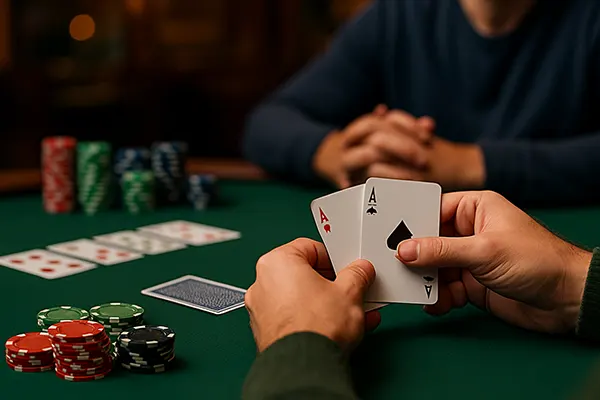
Psychology of Poker: How to Avoid Tilt and Maintain Discipline
Poker is not only a game of skill and strategy but also a profound mental challenge. While understanding mathematics and odds is crucial, the psychological side of the game often determines long-term success. Emotional control, resilience, and discipline are essential traits that separate consistent winners from players who struggle to maintain their edge under pressure.
Understanding Tilt in Poker
Tilt refers to a state of emotional frustration or anger that clouds rational decision-making. It often arises after a series of losses, a bad beat, or even prolonged periods of boredom during a game. Players on tilt tend to chase losses, make reckless bets, and abandon their strategic thinking, which can quickly lead to financial losses.
One of the key triggers of tilt is an unrealistic expectation of constant wins. Poker is a game of variance, and even the best players experience downswings. Accepting this reality helps to reduce emotional reactions to losses and maintain a rational mindset during challenging sessions.
Recognising early signs of tilt—such as irritation, impulsive decisions, or a desire to recover losses immediately—is vital. Developing the ability to take a break, slow down decisions, or even leave the table when emotions escalate can prevent tilt from taking control of your game.
Psychological Techniques to Combat Tilt
Practising mindfulness can significantly reduce emotional responses during poker sessions. Simple breathing exercises and short meditative breaks between hands help players reset their focus and lower stress levels. Staying present in each hand rather than dwelling on past mistakes keeps decision-making sharp.
Establishing a stop-loss limit before playing also reduces the risk of tilt. By setting a predetermined amount of money or number of buy-ins you are willing to lose, you create a psychological boundary that protects your bankroll and reduces pressure to recover losses impulsively.
Additionally, keeping a poker journal to track emotional states during play can build self-awareness. Reviewing these notes after each session helps identify patterns, triggers, and progress over time, allowing players to build stronger emotional control.
Building Long-Term Discipline
Discipline in poker means consistently making rational, well-informed decisions regardless of short-term outcomes. It is about maintaining focus, following your strategy, and resisting the temptation to deviate from your plan even during winning or losing streaks.
Creating a structured playing schedule is a powerful tool for developing discipline. Treating poker like a professional activity rather than spontaneous entertainment encourages consistent study, practice, and recovery periods that support long-term improvement.
Another vital aspect of discipline is bankroll management. Separating your poker funds from personal finances and strictly adhering to staking limits prevents emotional decision-making. Playing within your means protects both your finances and your mental stability during downswings.
Habits That Reinforce Discipline
Setting clear goals before each session improves focus. Objectives such as “play for three hours without distraction” or “review five marked hands after the session” give structure to your play and encourage steady development rather than impulsive behaviour.
Incorporating regular study into your routine enhances discipline as well. Reviewing hand histories, analysing opponents’ strategies, and learning from stronger players strengthens your technical skills and builds confidence, which in turn supports consistent play.
Finally, maintaining a healthy lifestyle outside poker contributes directly to mental discipline. Adequate sleep, balanced nutrition, and physical activity improve concentration and reduce stress, giving players the resilience needed to sustain disciplined decision-making at the table.

Developing Emotional Resilience
Emotional resilience allows players to handle the inevitable swings of poker without losing composure. It involves accepting uncertainty, staying calm under pressure, and recovering quickly from setbacks—qualities that are crucial for sustained success in high-stakes environments.
Learning to detach from results and focus on decision quality is essential. A well-played hand can still lose due to chance, and emotionally resilient players understand this. They evaluate their performance based on logic and process rather than short-term outcomes.
Support systems also play a role in resilience. Discussing hands, strategies, and mental struggles with fellow players provides perspective, reduces isolation, and reinforces positive habits during challenging times.
Techniques to Strengthen Mental Fortitude
Practising visualisation before sessions can mentally prepare players for challenging situations. Imagining calm, confident responses to bad beats or high-pressure moments builds psychological readiness and reduces panic when these situations arise in real play.
Developing routines before and after sessions can stabilise emotions. Simple rituals such as reviewing key concepts before playing and reflecting on lessons learned afterwards create a sense of structure that reduces anxiety and promotes focus.
Engaging with mental performance coaches or sports psychologists can also accelerate emotional development. These professionals provide tailored strategies to manage stress, build confidence, and maintain mental clarity under pressure.
-
 Betinia Casino registration, KYC and financial limits i...
Betinia Casino registration, KYC and financial limits i...Registration and verification are not “extra steps” at Betinia — …
01/28/2026See more -
 Why Red/Black in Roulette Isn’t 50/50: A Mathematical B...
Why Red/Black in Roulette Isn’t 50/50: A Mathematical B...At first glance, betting on red or black in roulette …
01/07/2026See more -
 The Impact of Mobile Devices on Gambling Game Design an...
The Impact of Mobile Devices on Gambling Game Design an...The widespread adoption of smartphones and tablets has fundamentally reshaped …
12/18/2025See more
